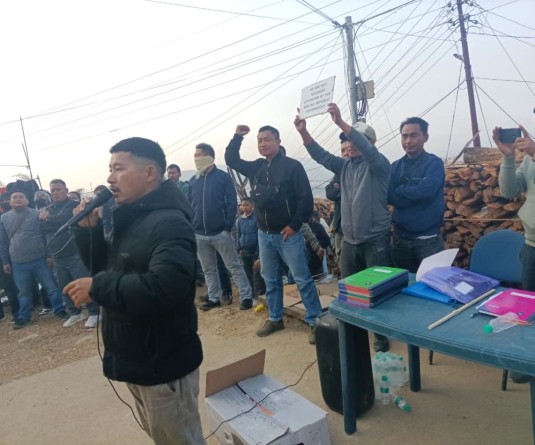
Morung Express News
Dimapur | September 6
Decolonisation against a mindset shaped by a colonial worldview, ancestral tradition versus Christian beliefs, as a theme, figured prominently on day one of the ‘September Dialogue on Naga Repatriation, Decolonisation and Healing’ by the Forum for Naga Reconciliation-Recover Restore and Decolonise (FNR-RRaD).
The fourth and final session of the day featured a discussion— Naga Voices on Memories, Healing and Decolonisation, headlined by four Naga academics. In the panel was Dr Loina Shohe, Assistant Professor of Sociology at Unity College; Bauna Panmei, who teaches history at the Patkai Christian College (Autonomous), Dr O Amihe Swu, Trainer of Teachers at EBRC, Niuland; and Manngai H Phom, Assistant Professor of English at Yingli College, Longleng.
According to Dr Loina Shohe, the British hegemony left a lasting impact on the Nagas that they began to view the world through “British eyes, through the Western Christian missionaries’ eyes.” The influence went to the extent of looking down on our own culture… And the biasness of the European culture has actually infiltrated, infiltrated our minds.”
Her comment was in response to a query from an audience. Rereading JH Hutton's Monographs on the Nagas was her presentation at the panel discussion. Hutton’s monographs, she said, were constructed through a very demeaning lens, which, however, were not treated as offensive. According to her, “our inability to see ourselves in our own way” has only helped “colonisation of the native minds.”
“We have to try to move out beyond this… Only then, what we call as true liberation, what we call as social development, what we call as restorative justice can be achieved,” she said.
The conundrum between native identity and Christian identity vis-à-vis demonising, or rather ‘paganising,’ folk rituals, practices and even artifacts also popped up from another audience member.
To this, Panmei commented, “I don’t think we need to reject the past, because that is who we are, or who we were.”
Dr Amihe Swu was of the view that “intent” should be considered in this context. “The intent with which it is now practiced is not to glorify, or give homage to the devil or satan, but it’s a recognition of the beautiful art form that is dancing or singing or crafting,” he said. According to him, there should be no conflict to it because religion and faith is about individual choice.






